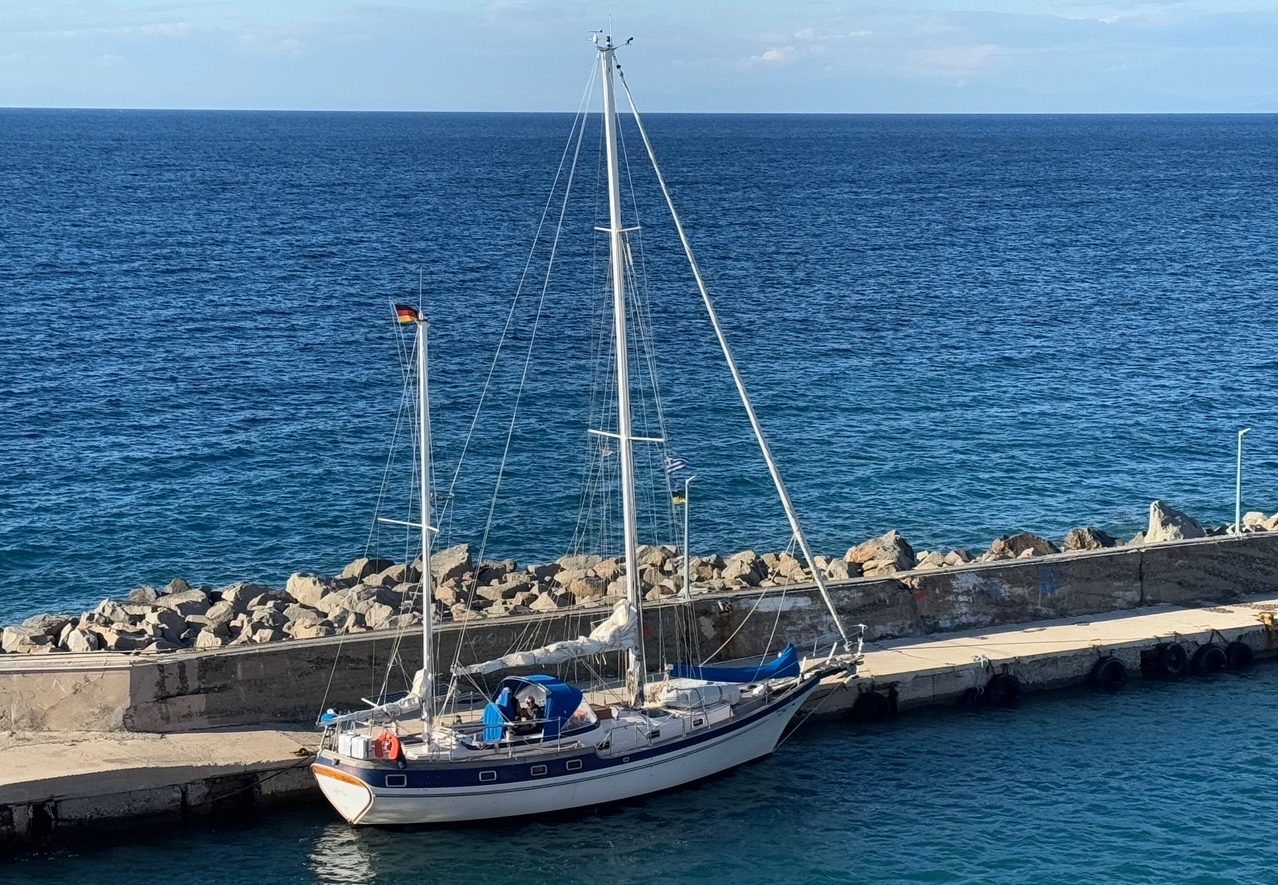
On the way south, after our last port of Sivota, opposite Corfu, we sailed along the coast of Epirus. It is beautiful, green, partly densely wooded, with many karst caves and grottos that are visited by excursion boats.



But Epirus has a lot more to offer, and we also explored it several times by car. In the north, Epirus is bordered by Albania (but in former times used to extend far into it), in the south by the Ambracian Gulf, an expanse of water about the size of Lake Constance, but only 6-10m deep, and correspondingly exotic and rare animal and plant species can be found there.
Epirus is incredibly rich in mythology and history. It was settled and ruled from Mycenae in the first millennium BC. Homer describes it in the Odyssey, and it provided several ships in the Trojan War. The Acheron River flows here, the dead souls were brought to Hades by the ferryman Charon, for Dante it was the passage to hell.

Olypiada, the mother of Alexander the Great, came from a family from Epirus, which is derived from Achilles. And Ambrakos was the capital of the kingdom of King Pyrrus (that's right, the one with the Pyrrus victory), his kingdom was conquered by the Romans in 200 BC and fell into ruin.
The naval battle at Aktio, near Preveza, took place in 31 BC, in which Cleopatra and Mark Antony were crushed by the Romans. In gratitude, Octavian (Augustus) built the city of Nicopolis here, which at times had 300,000 inhabitants, one of the largest in antiquity.
After the fall of the Roman Empire, the Byzantines ruled here until the Middle Ages, then came a long phase in which the Venetians and Ottomans alternated. In the 18th and 19th centuries, Epirus belonged to the Ottoman Empire, the governor was Ali Pasha, a bloodthirsty butcher. His tyranny was one of the reasons for the beginning of the Greek struggle for freedom, which ended with independence in 1821/27 - although the city of Preveza at the exit of the Ambracian Gulf remained in Ottoman hands until 1912.

After this wonderful landscape, we headed around the outside of the island of Lefkas with plenty of wind and waves. Unfortunately, the floating bridge that shortened the route is permanently closed.


